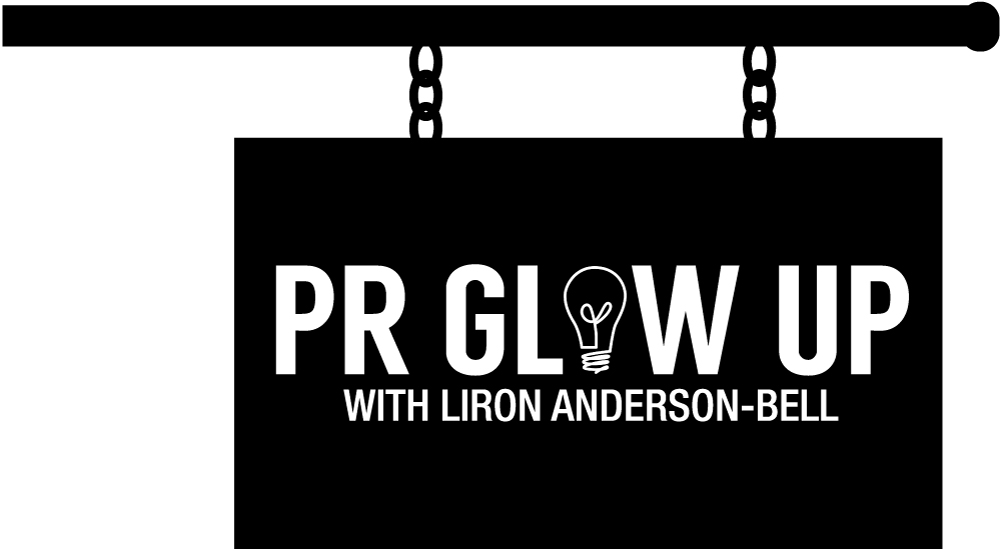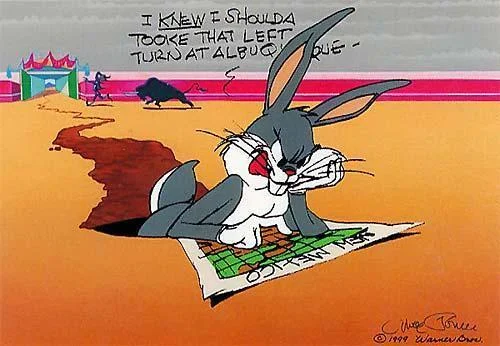How Disobeying My PR Agency Bosses Landed Me a National News Story
/I want to share an epic gut instinct moment from my earliest years in public relations – a flash of intuition that significantly accelerated my professional journey.
To be blunt, I intentionally broke the rules and it paid off.
I took a massive gamble that could have backfired spectacularly but thankfully, it didn’t. Instead of getting me fired, breaking the rules yielded funky dividends in the form of a national print story placement and subsequent boost in my “personal stock” at my job (all within just a few months of my arrival).
It was also a great lesson about navigating the intersection of risk, personal responsibility, and circumstance. I took a huge leap in my journey toward developing a trustworthy gut instinct.
I’ll get to the details in a minute, but some context is necessary first.
How do you develop gut instinct?
Gut instinct is a type of intuition that is gradually formed from life experience. It’s the automatic part of your thought process – the ability to make a quality decision or solve a problem without extensive analysis.
You aren’t born with it, like the fight or flight response. It’s also not a sixth sense – that innate knowledge we can’t attribute to the five traditional senses (sight, smell, hearing, taste, and touch).
I’m partial to Dr. Gary Klein’s theory about gut instinct – that we live through experiences that leave lasting memories and cues, and over time, the cumulative effect of those experiences is the ability to identify patterns and likely outcomes. As we become more comfortable relying on this process, we learn to trust it.
Sadly, many people never acquire it because our culture (at times) encourages us to dismiss our own intuition and rely exclusively on super-vetted information.
It’s a shame because gut instinct is an indispensable talent throughout your life and career, and one of the most important skills you need to develop when you begin a career in PR.
(duress + ambition) ÷ logic = career breakthrough
Let’s get back to my gut instinct moment.
Gut instinct is especially useful when you’re in a situation where you have to take a risk – such as the inevitable moment in every PR practitioner’s early career where a mandatory task forces the convergence of too much work, too little sleep, and a looming deadline.
It will be abundantly clear that you literally cannot complete a task the way you’ve been told (or taught) to do it – but the catch is that you’re still responsible for the deliverables.
Time for a gut check.
When I was 26, I joined the consumer practice in the New York office of a well-known global PR agency. I was an external applicant who had applied blind. I had no big agency experience. My portfolio was strong enough that they let me bypass the coordinator phase but I was, in this agency’s estimation, unproven – so they brought me in as an assistant account executive (AAE). (Shout out to the eternally wonderful Dan Relton, the human resources contact who inbounded my resume and thought I was worth the gamble.)
I worked on accounts for prepared foods, household items, and organizations you’ve never heard of that represent consortiums of consumer products companies. I was excited about joining a top firm and I had no problem working hard, but I felt like I’d been “busted down.”
AAE was a pretty junior role in my mind, given that I had broken my freakin' back to distinguish myself during my "newbie" years, and had already earned promotions at two smaller agencies prior to this one. I was exhilarated about the idea of the job — but frustrated about having to take a big step back.
The vast majority of my days were spent pitching stories to media outlets – a good 25 hours per week. This is where things began to unravel.
To be fair, a significant part of any entry-level PR job is pitching, and my fellow AAEs were also pitching all day long. Learning to pitch effectively is important, and as PR people we pitch the media from the dawn of our career to its sunset. So – I didn’t think I deserved an exemption, but I longed for the latitude of my previous two agencies, where I’d also earned the privilege of interacting with clients directly, planning events mostly by myself, and participating in major presentations to higher-ups.
At this agency — like many other large PR outfits — before we AAEs pitched any reporters or producers, newbies who were “newbier” than us would ceaselessly peruse Bacon’s Directories until their fingertips shredded and bled, weeping quietly as they identified and vetted hundreds of media contacts across print, TV and radio that covered our product categories.* They typed up the information into campaign media lists and presented us with hard copies as tributes to their anguish.
Are you with me? Each of us individually received a gigantic forest-killing stack of paper listing the names of hundreds of media contacts that we had to call.
Then, the mailroom would do mass mailings (!) of physical press kits (!!) to the media contacts from the lists, and fax those same contacts (!!!) the lead press release about the product we were pitching. #becausethe90s.
After that, we'd begin pitching in earnest.
I cringe to say it, but “the pitch” itself was just a follow up call to see if the kit or fax had been received, and to try to convince the media contact to do a story on the product. No reading reporters’ previous articles, no crafting engaging ledes. Just endless calls to journalists who received mountains of press kits, endless voicemails, and dozens of crap phone pitches every day.
They were justifiably curt if we were lucky enough to reach them live on the phone. If we weren’t lucky, we had to leave a voicemail and try again later. To this day, I detest talking on the phone to anyone. About anything.
By contrast, at a much smaller agency I’d worked for prior to this one, we had a table covered with Rolodexes full of handwritten, personal contacts that the owner and staff of the agency had made and they were there for everyone to use. We may or may not have had Bacon’s Directories laying around, but these painstakingly maintained Rolodexes were the starting point and the rest was manual research.
gif: Prezly
We weren’t given, and didn't make, massive media lists. We didn't email pitches; email existed, but it wasn’t “a thing” yet and the agency didn’t have it. The few computers at the agency were basic word processors – which made sense because most companies didn’t have websites. AOL was the leading search engine, and everyone was on dial-up. #youvegotmail
Our process was brilliant and efficient. We identified the media outlet(s) we wanted to get stories in, decided who the ideal reporters and producers were, and then pitched those specific people.
Much like Colt 45, it worked every time. In fact, while I was still just an intern at that agency, I used that method to land a feature story in The Hollywood Reporter.
Fast-forward to my new life at The Big-Time PR Firm. One of my accounts was an obscure trade association that itself had no claim to fame, but wanted to be known for the research it performed about its member companies’ products. I was clear on the expectations of me, but having to call hundreds of reporters multiple times about a client that wasn’t necessarily on target for their beat was maddening.
The thing was, by then I already knew that this “spray and pray” method of pitching was a horrible aberration of logic. It felt unnatural and was getting me nowhere. Strike one.
Plus, no one was even keeping track. There was no way for my managers to know if I was making progress because we were only required to keep basic notes (for ourselves) about who we called. The futility of it all made me want to overturn my desk, but it was bolted to the walls of my cubicle. Strike two.
It was a perfect storm of frustration, knowledge that there was a better way to get my work done, and pressure to distinguish myself in a new environment. Strike three.
My gut instinct took over and I decided that given the circumstances, it didn’t matter whether I called five reporters or 500. The point was to land a few strong placements – the bigger, the better. I didn’t ask my manager about it, and I didn’t speak to my colleagues to get feedback. I just stopped making my calls, and it was liberating.
I was scared that my manager would suddenly ask to see my call notes or that I’d look suspiciously idle at my desk and get in trouble, but everyone was too busy to even notice.
With all the extra time I had, I voraciously consumed the major newspapers and high-circulation lifestyle magazines around the office, looking for stories about items in my product category. When I found one, I wrote the reporter’s name and media outlet down. I did that until I had several names, and then I pitched those specific people only. I didn’t realize it at the time, but I was vetting my list.
Jackpot.
My first placement at that agency came quickly. It was in USA Today and I landed it shortly after I started to blatantly ignore the pitching protocol. The visibility of that placement led to other media outlets taking notice of my client, and a few more placements followed.
It wasn’t a flash of genius – I had learned how to pitch effectively prior to arriving at that agency. It worked because I felt forced into a corner, sensed a watershed moment for my tenure at that agency, and let my gut take over.
I obliterated my placements goal and the client was ecstatic. My manager all but hoisted me on her shoulders. Her managers took notice, too.
The domino effect that followed was gratifying and I continued to distinguish myself at the agency. I arrived early, stayed late and worked hard. My writing was good when I got there, but I sought feedback and got better. I felt more confident. I earned placements (sometimes with my actual media lists, sometimes by breaking rank again), and made useful suggestions to higher-ups about account strategy whenever I could.
Over time, I was brought into meetings with more senior staff and invited to lunches with clients. When I resigned to take another opportunity, the agency made a counter-offer – and when I declined, a senior staffer visited my cube to tell me I was welcome back anytime. All of this happened because in a moment of duress, I had the presence of mind to trust my intuition.
*I may have exaggerated a little about the blood and sorrow.
Inspiration and Resources
I tipped my hand on this one earlier — I mentioned Dr. Gary Klein's work on developing a gut instinct. In 2002 Dr. Klein published Intuition at Work: Why Developing Your Gut Instincts Will Make You Better at What You Do - Gary Klein Ph.D., a great book about harnessing your gut intuition to make it work for you in your career. Do yourself a favor and read it!










